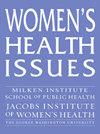美国医疗补助等待期永久避孕的妇产科医生观点和咨询实践。
IF 2.5
2区 医学
Q2 PUBLIC, ENVIRONMENTAL & OCCUPATIONAL HEALTH
引用次数: 0
摘要
背景:为了保护患者免于强制绝育,联邦政府强制要求获得永久避孕的患者30天的等待期是实现永久避孕的已知障碍。现有的研究没有明确探讨医生如何解释和操作同意政策,关于等待期的建议,或者医生是否认为该政策应该修改。本文的目的是为了更好地了解妇产科医生(OB-GYN)的感受,想法和咨询实践围绕等待期作为咨询和提供永久避孕护理的关键利益相关者。基本程序:我们采访了81名有永久避孕愿望的产后妇女和61名来自美国四家医院的妇产科医生。访谈录音、转录,并使用快速定性分析和主题内容分析进行分析。主要发现:47名医生(70.2%)对医疗补助等待期政策持负面态度,14名医生(20.9%)持中立或混合态度。医生们经常认为医疗补助计划的绝育同意政策是不公平的,并报告说,等待期阻碍了患者的自主权。一些医生建议,等待期需要修改。医生们列举了几个与等待期实施相关的障碍,包括缺乏产前护理或没有开始对话。医生们提到了等待期的各种咨询方法,或明确或不明确地解释了这项政策。最后,医生们讨论了对等待期政策的不同解释。主要结论:我们样本中的医生大多不赞成目前的医疗补助绝育等待期。然而,医生报告了不同的临床咨询方法以及关于政策修订的信念。政策的修订应根据包括患者、临床医生和政策制定者在内的各种利益攸关方的实际经验和专业知识。本文章由计算机程序翻译,如有差异,请以英文原文为准。
Obstetrician-Gynecologist Perspectives and Counseling Practices on the U.S. Medicaid Waiting Period for Permanent Contraception
Background
Created to protect patients from coercive sterilization, the federally mandated 30-day waiting period for patients with Medicaid desiring permanent contraception is a known barrier to permanent contraception fulfillment. Existing research does not explicitly explore how physicians interpret and operationalize the consent policy, how they counsel regarding the waiting period, or whether physicians believe the policy should be revised. The purpose of this paper is to better understand obstetrician-gynecologist (OB-GYN) feelings, thoughts, and counseling practices around the waiting period as key stakeholders in counseling and provision of permanent contraception care.
Basic Procedures
We interviewed 81 postpartum people with a documented desire for permanent contraception and 61 OB-GYNs who delivered their infants at four hospitals across the United States. Interviews were audio-recorded, transcribed, and analyzed using rapid qualitative analysis and thematic content analysis.
Main Findings
Forty-seven physicians (70.2%) expressed negative feelings toward the Medicaid waiting period policy and 14 (20.9%) expressed neutral/mixed feelings. Physicians often viewed the Medicaid sterilization consent policy as inequitable and reported feeling that the waiting period hinders patient autonomy. Several physicians suggested that the waiting period needs revision. Physicians cited several barriers related to the implementation of the waiting period, including a lack of prenatal care or the conversation not being initiated. Physicians mentioned various approaches to counseling around the waiting period, either explicitly or inexplicitly explaining the policy. Last, physicians discussed differing interpretations around the waiting period policy.
Principal Conclusions
Physicians in our sample largely do not favor the current Medicaid sterilization waiting period. However, physicians report varying approaches to clinical counseling as well as beliefs regarding policy revision. Revision to the policy should be informed by the lived experience and expertise of the various stakeholders, including patients, clinicians, and policymakers.
求助全文
通过发布文献求助,成功后即可免费获取论文全文。
去求助
来源期刊

Womens Health Issues
Multiple-
CiteScore
4.50
自引率
6.20%
发文量
97
审稿时长
32 days
期刊介绍:
Women"s Health Issues (WHI) is a peer-reviewed, bimonthly, multidisciplinary journal that publishes research and review manuscripts related to women"s health care and policy. As the official journal of the Jacobs Institute of Women"s Health, it is dedicated to improving the health and health care of all women throughout the lifespan and in diverse communities. The journal seeks to inform health services researchers, health care and public health professionals, social scientists, policymakers, and others concerned with women"s health.
 求助内容:
求助内容: 应助结果提醒方式:
应助结果提醒方式:


